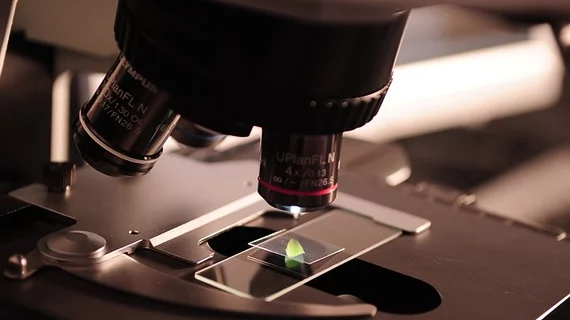Digital pathology technique 90% accurate in counting T-cells
A team from Finland has developed an artificial intelligence (AI) pathology model that detected the T-cell count in cancerous tissue with 90 percent accuracy.
The researchers, with the University of Jyväskylä’s Faculty of Information Technology, used data from 5,523 intestinal cancer tumor images with a pixel size of 1,472 by 921. According to a news release from the university, the neural computing model produced a successful cell count in 90 percent of cases.
Prior to testing the digital pathology technique, a group of histopathologists confirmed the T-cell counts of the images using visualization software.
There were a small number of images in which the AI software was unable to recognize cells correctly, according to the university, but this is likely due to inaccuracies in the data training set. The team plans to fine-tune the method by introducing additional samples.
“AI based digital pathology offers many new possibilities,” said lead researcher Pekka Neittaanmäki, a professor at the university in a statement. “Biobanks and hospitals can send their histopathological samples in digital form for analysis to a specialized center that can provide results very quickly. In the beginning, the center could serve customers on a national level, and in the future, on an international level
The research has been published in the University of Jyväskylä’s scientific publications and will be sent out to an international public publication for evaluation.

